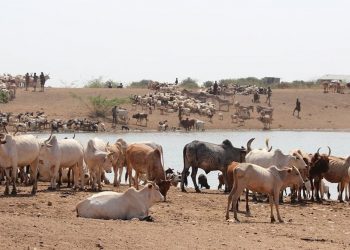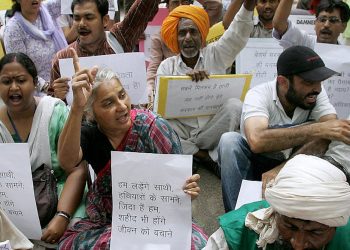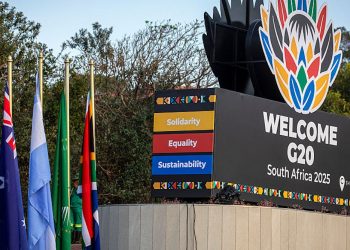The first budget speech of Ghana’s new government on 11 March painted a picture of an economy in crisis, facing high debt and fiscal mismanagement. The finance minister, Cassiel Ato Forson, acknowledged that key International Monetary Fund performance targets would be missed and announced drastic spending cuts.
However, most Ghanaians just wanted to know whether the minister would announce the scrapping of the country’s electronic transfer levy (or e-tax), as he’d indicated he would.
He did, a decision parliament endorsed unanimously the next day.
The e-levy, a fee on mobile money transactions, was introduced in 2022. Ghanaians immediately united around the issue in fierce opposition, a sentiment that grew as the tax took effect.
Both major parties had campaigned for its removal in the run-up to elections held in December 2024.
How did the e-levy become so unpopular, and what will repealing it mean?
Over three years, researchers from the International Centre for Tax and Development worked with partners in Ghana to study the e-levy as part of our Digitax research programme. This study generated knowledge and evidence at the interface of digital financial services, digital identities and tax.
The e-levy’s intense politicisation and complex design made it an interesting case of a wider trend of mobile money taxes in the region. We learned more about the e-levy’s impact on informal sector workers in Accra, knowledge and sentiments, registered merchant exemptions and mobile money usage.
Based on this research, three key lessons emerge.
Firstly, like other taxes on mobile money, the e-levy has come to be an important source of revenue in Ghana, even if it did not live up to initial optimistic estimates of its potential.
Secondly, beyond the revenue it raised directly, the real potential of the e-levy – and loss if it is completely abolished – lay in the data it produced. It was enabling the Ghana Revenue Authority to uncover users with significant incomes who were not registered for income tax.
Thirdly, the new consensus against the e-levy has arisen because important stakeholders such as mobile money providers and public opinion were not adequately managed from the start.
A difficult birth
Much like its departure, the e-levy was announced during a time of fiscal distress. Mobile money transactions had expanded rapidly, particularly after COVID-19, making it an attractive tax target, especially for the informal sector.
Given this growth in the digital financial sector coupled with the need for revenue, the e-levy targeted the value of electronic financial transactions.
Introduced in the 2022 budget at 1.75%, with a 100 cedi (US$10) daily exemption, it was met with strong resistance. The budget was rejected, protests erupted, and negotiations ensued. The government attempted to win public support through town hall meetings, eventually reducing the rate to 1.5% and adding exemptions.
It went ahead with implementation in May 2022, however.
Negative sentiment persisted, fuelled by confusion and concerns about its implementation.
The government framed the tax as being essential for national development and investment attraction. But efforts to justify the necessity and benefit of the tax seemed to fall short.
Read more:
New data on the e-levy in Ghana: unpopular tax on mobile money transfers is hitting the poor hardest
Several International Centre for Tax and Development studies, nationally representative and one focusing on informal markets, found an overwhelming sense of dissatisfaction among Ghanaians.
The studies also showed the grievances had less to do with the tax and its rates per se and more to do with how people viewed government and its trustworthiness to collect and spend money.
Did Ghana’s e-levy work?
New taxes are often unpopular, but that alone should not determine their fate.
Other key indicators of performance include:
Revenue: The e-levy met only 12% of the initial revenue target of GH₵6.96 billion (US$380 million). But, based on our research, we have concluded that this reflects poor forecasting rather than implementation failure. It still contributed about 1% of total tax revenue, which equated to about US$129 million annually.
Mobile money usage: Many critics feared negative effects on financial inclusion. However, one study of this impact shows that while transactions initially dropped, they soon rebounded and continued to grow. Another International Centre for Tax and Development study found that exempted payments values and volumes increased, with registered merchants who benefited from this exemption developing greater trust in government policies.
Equity and distributional effects: Despite exemptions, an International Centre for Tax and Development study focusing on the intended target of the e-levy, the informal sector, found that the e-levy as a whole was highly regressive. While the poorest were somewhat protected by the 100 cedi daily threshold, low-income mobile money users still bore the greatest tax burden. Additionally, with the high rate of inflation in Ghana, the unchanged daily threshold became less effective with time.
This result is striking given that in its design, the e-levy is potentially less regressive than most mobile money taxes in Africa.
Will it be missed?
Given public hostility, its removal may be widely celebrated. However, it leaves a revenue gap that must be addressed. Ghana’s fiscal history suggests this could lead to new, potentially unpopular taxes.
The bigger loss may be the dismantling of systems built to administer the e-levy. These new advances in tax administration allowed the country’s revenue authorities to track high-volume users who were not registered for income tax, offering a path towards more efficient taxation.
As governments face mounting revenue pressures in an era of high debt and declining aid, careful attention must be paid to the politics of tax reform. Perhaps the e-levy’s greatest flaw was the haste with which it was introduced, without adequate stakeholder engagement. Uganda faced similar backlash from rushed mobile money taxation in 2018.
Evidence shows that perceptions affect how users respond to taxes, and first impressions can be hard to overcome. So, it is essential to make sure they are seen as fair and appropriate from the start, so that they are sustainable.
Max Gallien is a Research Lead at the International Centre for Tax and Development (ICTD). Through the ICTD, the research described in this article has been supported by the UK Foreign, Commonwealth and Development Office, the Norwegian Agency for Development Cooperation and the Gates Foundation.
Martin Hearson is a Research Director at the International Centre for Tax and Development (ICTD). Through the ICTD, the research described in this article has been supported by the UK Foreign, Commonwealth and Development Office, the Norwegian Agency for Development Cooperation and the Gates Foundation.
Mary Abounabhan is a Researcher at the International Centre for Tax and Development (ICTD) Through the ICTD, the research described in this article has also been supported by the UK Foreign, Commonwealth and Development Office, the Norwegian Agency for Development Cooperation and the Gates Foundation.
















